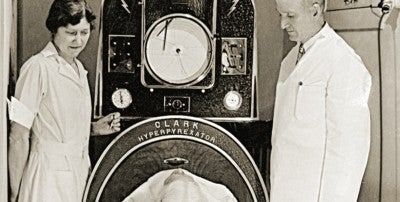
Recent cases of polio in the United States have caused some public health officials to sound the alarm and reiterate the importance of polio vaccines. Luther Rhodes, MD, infectious diseases physician with LVPG Infectious Diseases, outlines how a polio outbreak today could be different than it was 60 years ago.
Throughout the early part of the 20th century, polio, a debilitating and often deadly infectious disease, struck fear in the hearts of people throughout the world. The virus invades the central nervous system and can cause paralysis. At its peak, polio was responsible for paralyzing approximately 35,000 people a year, many of them children.
Thanks to vaccines, which were introduced in the early 1950s, polio was considered eradicated from the United States in 1979. There have only been three known cases since then in the United States, the last one diagnosed in 1993. However, a recent case in upstate New York has sparked concern from public health officials.
“I think that everyone really thought polio was gone, so it was surprising to find a case after so long. There are still pockets of people who are unvaccinated for various reasons. Therefore, it’s concerning to find any cases of polio,” Rhodes says.


